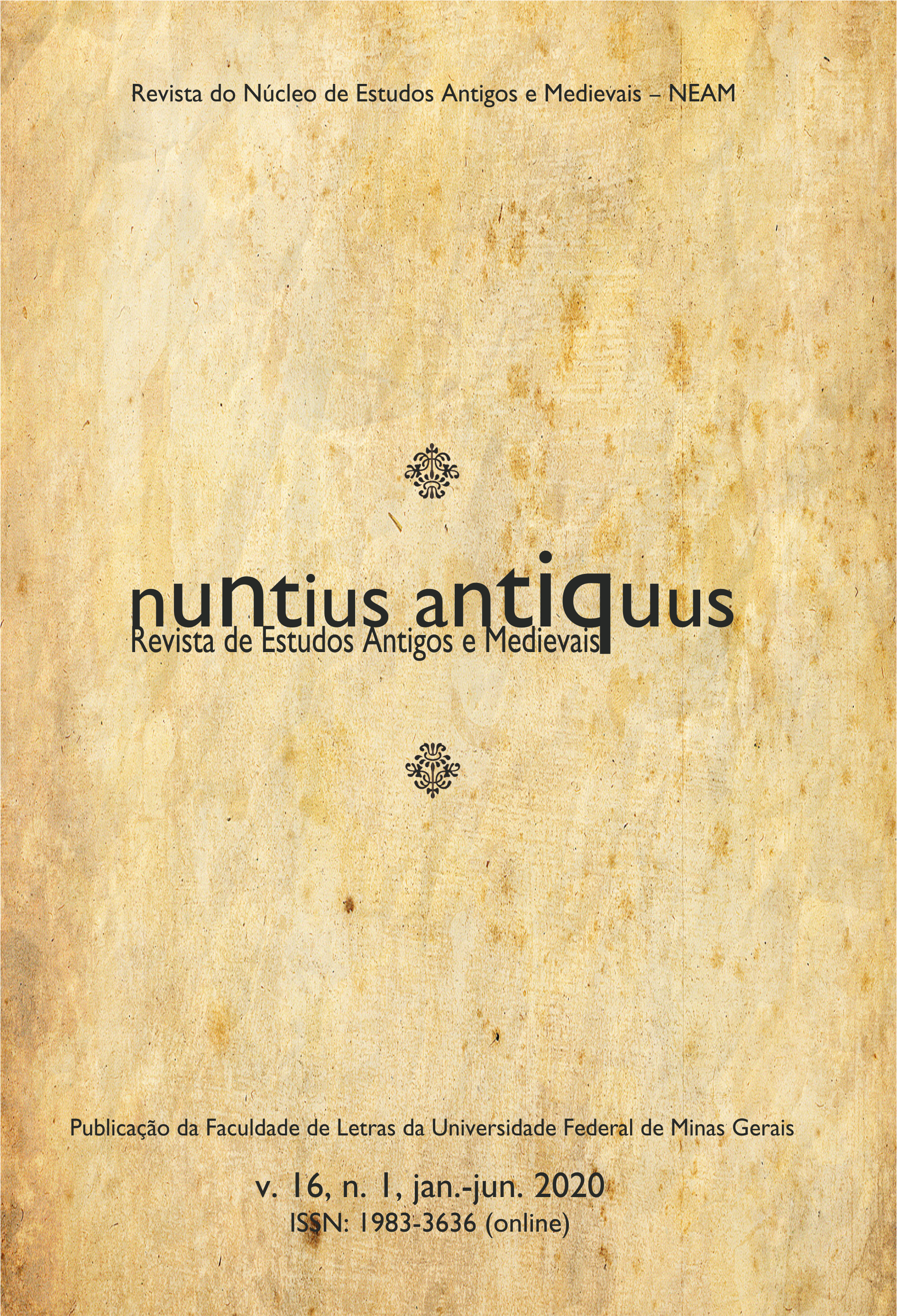Rhetoric in Homer?
An Analysis of Odysseus’ Supplication to Nausicaa in Odyssey 6 (135-97)
DOI:
https://doi.org/10.35699/1983-3636..21481Keywords:
Nausicaa, Phaeacians, Odysseus, Rhetoric, Odyssey, HomerAbstract
This article discusses the possibility of exploring the field of rhetoric within the Homeric poems. Is it adequate to employ the term “rhetoric” in discussions of Homeric poetry? We contend, following Knudsen (2014), that yes, the Iliad and the Odyssey provide us with the earliest instances of rhetorical activity in Antiquity. Firstly, we address why some scholars disregard that possibility, then argue why we disagree with them. Finally, we apply the elements of our theoretical discussion to an analysis of Odysseus’ supplication to Nausicaa in Odyssey 6, focusing on: a) the introduction by the Homeric narrator with the terms kerdíon, kerdaléos, and meilíkhios; and b) Odysseus’ strategic speaking when trying to convince Nausicaa to provide him with clothes and information about the way to town.
Downloads
References
BEEKES, R. Etymological Dictionary of Greek. Leiden: Brill, 2010.
CHANTRAINE, P. Dictionnaire Étymologique de la Langue Grecque. Nouvelle edition avec supplement. Paris: Klincksieck, [1968] 1999.
COLE, T. The Origins of Rhetoric in Ancient Greece. Baltimore: The Johns Hopkins University Press, 1991.
CUNLIFFE, R. A Lexicon of the Homeric Dialect. Oklahoma: University of Oklahoma Press, 1977.
DE JONG, I. Homeric κέρδος and ὄφελος. Beiträge aus dem Hamburger Thesaurus Linguae Graecae I, v. 44, n. 2, p. 79-81, 1987.
FERREIRA, P. O poder da retórica no Ulisses Homérico. Boletim de Estudos Clássicos, Coimbra, v. 54, p. 9-29, 2010. DOI: https://doi.org/10.14195/0872-2110_54_1.
FRISK, H. Griechisches Etymologisches Wörterbuch (band II). Heidelberg: Universitätsverlag Winter, 1970.
KNUDSEN, R. Homeric Speech and the Origins of Rhetoric. Baltimore: The Johns Hopkins University Press, 2014.
LATTIMORE, R. (Translation). The Odyssey of Homer. New York: Harper & Row, 1965.
LIDDELL, H.; SCOTT, R; JONES, H. A Greek-English Lexicon. Oxford: Clarendon Press, 1940.
MALTA, A. Os feácios e a transição de Odisseu na Odisseia. Acta Scientiarum, Maringá, PR, v. 39, n. 1, p. 1-11, 2017.
MOST, G. The Structure and Function of Odysseus’ Apologoi. Transactions of the American Philological Association (1974-), Baltimore, v. 119, p. 15-30, 1989. DOI: https://doi.org/10.2307/284257.
MURRAY, A. (Translation) The Odyssey with an English Translation. Cambridge: Harvard University Press; London: William Heinemann, 1919. Available at: http://www.perseus.tufts.edu. 2 v.
ROISMAN, A. Kerdíon in the Iliad: Profit and Trickiness. Transactions of the American Philological Association (1974-), Baltimore, v. 120, p. 23-35, 1990. DOI: https://doi.org/10.2307/283976.
SCHIAPPA, E. The Beginnings of Rhetorical Theory in Classical Greece. New Haven: Yale University Press, 1999.
SCHMITT, R. Hesych K-3598. Glotta, [S.l.], v. 51, p. 94-5, 1973.
SEMÊDO, R. Alcínoo versus Odisseu na corte dos feácios: um jogo discursivo. 2018. 203f. Dissertation (M. A.) - Faculdade de Filosofia, Letras e Ciências Humanas, Universidade de São Paulo, São Paulo, 2018c.
SEMÊDO, R. Alcínoo versus Odisseu na corte dos feácios: evidências preliminares de um jogo discursive. In: BAPTIST, N.; LEITE, L.; SILVA, C. (org.) Ludus: poesia, esporte, educação. Vitória, PPGL, 2018a.
p. 262-273.
SEMÊDO, R. Od. 8.548: Ocultação e verdade no questionamento de Alcínoo a Odisseu. Ágora. Estudos Clássicos em Debate, Aveiro, v. 20, p. 11-31, 2018b.
VERNANT, J.-P. La mort dans les yeux: figures de l’autre en Grèce ancienne. Paris: Hachette, 1985.
Downloads
Published
Issue
Section
License
Copyright (c) 2020 Rafael de Almeida Semêdo

This work is licensed under a Creative Commons Attribution 4.0 International License.










